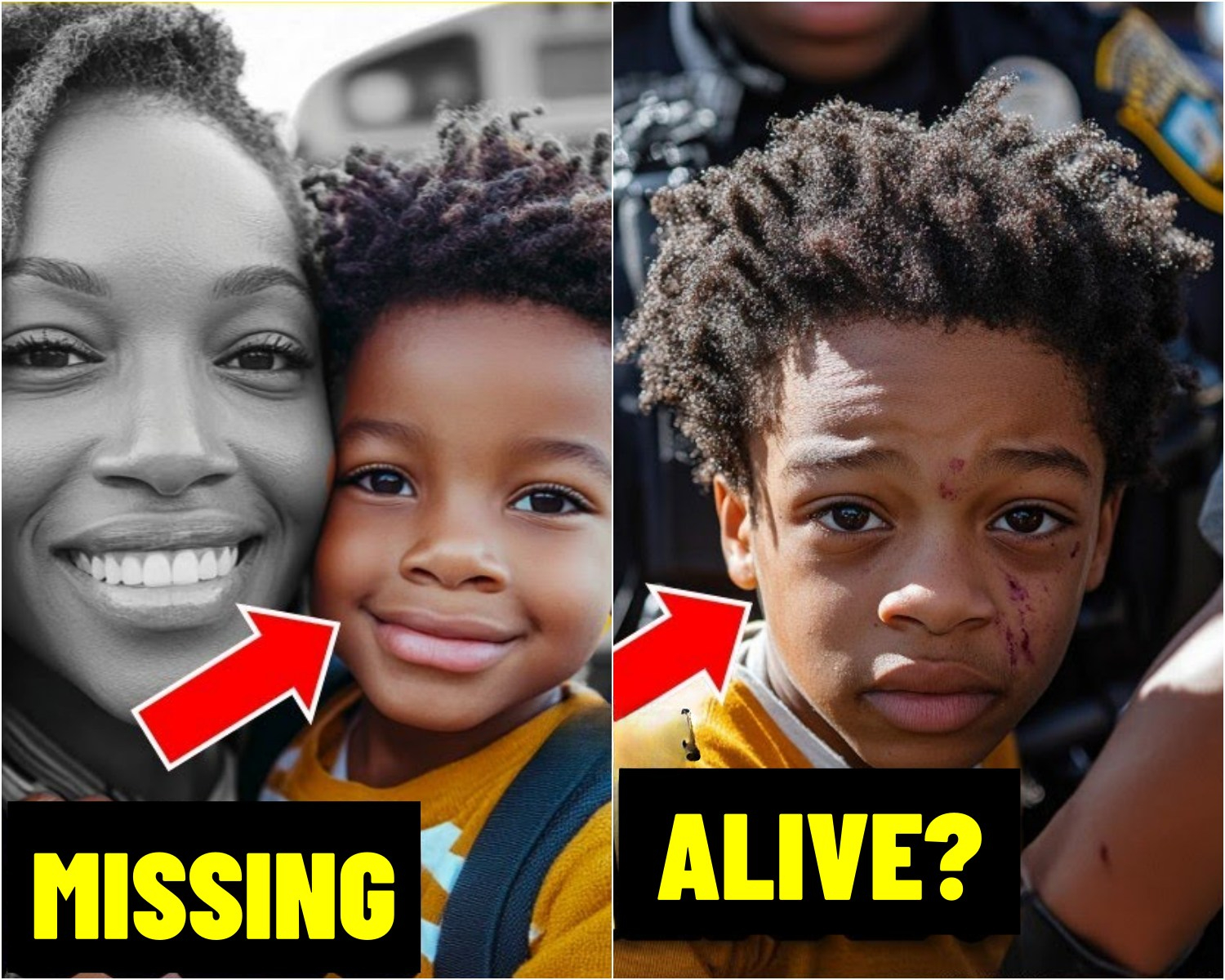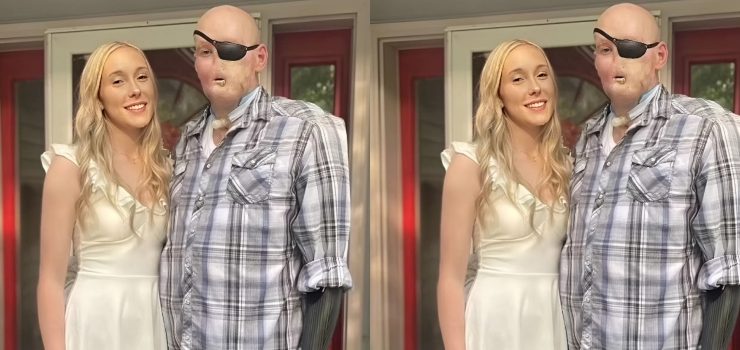For six long years, Marlene Jackson lived with an emptiness that never eased, waiting for her son Devon to return home. He had vanished on what seemed like a routine Sunday in Atlanta, a quiet afternoon that turned into a nightmare no mother should ever endure. Devon, just eight years old, had left the house in his red windbreaker carrying his Spider-Man notebook, telling his mother he was heading to a friend’s house only two blocks away.

Forty-five minutes later came the call that he had never arrived. Panic set in quickly—calls to his phone went unanswered, neighbors hadn’t seen him, and Marlene turned to the police. Instead of urgency, she met dismissiveness. Officers told her boys run away all the time, pressed her for details about her home life, and implied Devon had simply wandered off. No Amber Alert was issued. No search dogs or helicopters were deployed. By dawn, Marlene stood at the station with missing posters, only to see her child reduced to a short bulletin buried in the paper with no photo, just 41 words beneath the weather report. She and her daughter Tiana searched alone that night, calling Devon’s name into the dark streets. Days turned to months, and then years.
Devon’s bedroom stayed exactly the same—his toys waiting, his sheets neatly tucked, his Spider-Man figurine leaning on the shelf. Every year Marlene baked his favorite chocolate cake, setting it out though no one came to eat it. Every week she dusted his room, refusing to let it become a memorial. Tiana, growing older, started a Facebook page called “Find Devon Jackson,” but it gained little traction. The world moved on, forgetting a boy it had never really noticed, while Marlene’s grief became quieter but never less sharp. Then, six years later, news broke of another missing boy, ten-year-old Eli Tanner from Franklin, Tennessee.
His case was treated as urgent from the start—Amber Alerts flashed across phones, helicopters circled, search dogs swept the woods, the FBI joined in, and press conferences were held daily. Watching this unfold, Marlene’s heart ached with rage. She compared the overwhelming response for Eli to the silence when Devon disappeared. Then came a detail that stopped her cold—a red pickup truck tied to Eli’s disappearance, the same type of vehicle dismissed in Devon’s case years earlier.
Police traced the truck to Wendell Parker in rural Mississippi. Surveillance began, and after nine tense days, authorities raided his trailer. Eli was found alive, frightened but safe, curled on a couch. In another room they discovered an older boy, quiet and hollow-eyed, without identification. When fingerprints were checked, they revealed what Marlene had prayed for and feared to never hear again: it was Devon Jackson, abducted at eight, now fourteen. Detective Monroe called Marlene gently with the words she had waited six years to hear: “We found him, Ms. Jackson. He’s alive.” She collapsed, sobbing, as Tiana held her.
The drive to Mississippi was silent, heavy with anticipation. At the safe house, they met a boy in a gray hoodie, knees drawn to his chest, who looked at Marlene without recognition. “Who are you?” he asked. “I’m your mama,” she whispered. “No. My mama’s name was Karen,” he answered. Parker had brainwashed him, telling him his real mother had abandoned him, even renaming him Andre. He had lived off the grid, no school, no records, no real memories of home. A caseworker explained that his mind had protected itself by clinging to Parker’s lies. Marlene showed him childhood drawings, hummed lullabies, but he shook his head.
“I don’t remember,” he said. “That’s all right,” Marlene replied softly. “I remember for both of us.” The national headlines focused almost entirely on Eli, the rescued child from Tennessee. Devon’s story was relegated to a footnote: “Second boy found in unrelated case.” No one asked why he had been dismissed as a runaway, why no search had been made, why his mother had been left to fight alone. Marlene demanded answers. She filed a civil suit against the Atlanta Police Department, bringing every flyer, every call log, every email she had kept. She read her first 911 call aloud in court: “I told them he was missing. They told me he probably went to see his father. I told them his father hadn’t seen him in years. They told me boys wander off. I told them I was scared.
They told me not to overreact.” The city issued an apology and a settlement, which Marlene used to start the Devon Jackson Initiative to help other missing Black children and their families. Healing for Devon was slow. He flinched at loud noises, avoided being touched, and struggled to connect his fractured past with the present. Yet there were small signs of hope—sketches in a notebook, quiet dinners with his mother, questions about books he once loved. On his fifteenth birthday, Marlene made his favorite meal and gave him a framed baby photo of himself asleep on her chest. He stared at it a long time before whispering, “That’s me.”
“That’s us,” she said through tears. That evening, as Marlene hummed in the kitchen, Devon asked, “You still hum that song?” She smiled. “I never stopped.” He sat at the table and began to draw again. It was a small thing, but it was a start. Devon Jackson’s story is more than a reunion—it is a testament to a mother who refused to forget even when the world did, and a reminder of the justice denied to so many. It shows the stark difference in who gets searched for and who is left behind. Tonight, Marlene sits with her son under the same roof again. It cannot erase the lost years, but it is a beginning, and for her, that is everything.





